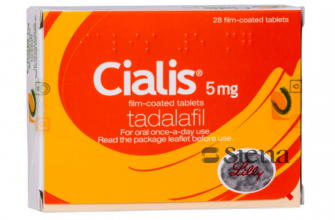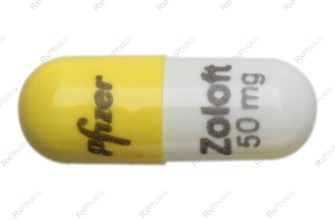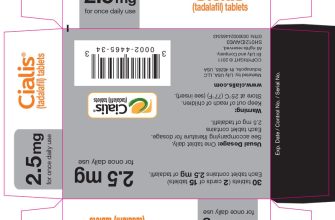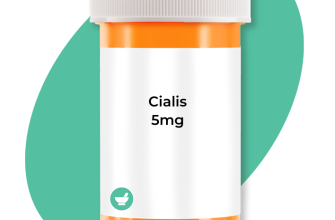Sildenafil 20 mg shows promising results for women experiencing sexual arousal disorders. This medication, primarily known for treating erectile dysfunction in men, has gained attention for its potential benefits in enhancing female sexual response.
Studies indicate that Sildenafil may increase blood flow to the genital area, leading to heightened sensitivity and sexual pleasure. Women who report difficulty in achieving arousal could find this treatment helpful. Clinical trials have demonstrated that many women experience improved sexual satisfaction when using this drug.
It’s crucial to approach the use of Sildenafil for women with a clear understanding of individual health needs. Consulting a healthcare professional before starting treatment ensures that this option is appropriate and safe based on one’s medical history. Additionally, discussions about dosage and possible side effects can help manage expectations and enhance the overall experience.
For those considering Sildenafil 20 mg, being informed about its effects and proper usage will pave the way for an improved intimate life. Open dialogue with healthcare practitioners empowers women to make educated choices regarding their sexual health.
- Sildenafil 20 mg for Women
- Dosage and Administration
- Potential Side Effects
- Understanding Sildenafil: A Brief Overview
- Potential Benefits of Sildenafil for Women
- Dosage Guidelines for Women Taking Sildenafil
- How Sildenafil Affects Female Sexual Function
- Possible Side Effects and Risks of Sildenafil
- Interactions Between Sildenafil and Other Medications
- Nitrates
- Alpha-Blockers
- Consulting with Healthcare Providers About Sildenafil
- Topics to Discuss
- Questions to Ask
- Real-Life Experiences: Women Using Sildenafil
- Dosage and Timing
- Discussing Experiences and Concerns
- Research and Studies on Sildenafil in Women
Sildenafil 20 mg for Women
Women can benefit from Sildenafil 20 mg in managing sexual arousal disorders. Research indicates that this medication improves blood flow, leading to enhanced sexual response in some women. It specifically targets the clitoral region, potentially increasing sensitivity and pleasure during intimacy.
Dosage and Administration
The recommended starting dose for women is typically 20 mg taken about 30 to 60 minutes before sexual activity. It’s advisable to skip high-fat meals prior to taking the medication, as they may delay absorption. Women should consult a healthcare professional for personalized guidance and to confirm that Sildenafil is appropriate for their specific health circumstances.
Potential Side Effects
While Sildenafil is generally well-tolerated, some may experience side effects such as headaches, flushing, or gastrointestinal issues. Rarely, visual disturbances and allergic reactions can occur. Monitoring for these effects is essential, and any persistent symptoms should prompt a discussion with a doctor. Prior health conditions, particularly cardiovascular issues, should be disclosed during consultations.
Understanding Sildenafil: A Brief Overview
Sildenafil, commonly known for treating erectile dysfunction in men, is also explored for its effects on women. Research indicates that it may enhance sexual arousal and pleasure by increasing blood flow to the genital area. While most studies focus on male subjects, emerging evidence suggests benefits for women, particularly those experiencing sexual arousal disorder or those taking antidepressants that might affect libido.
This medication works by inhibiting the enzyme phosphodiesterase type 5 (PDE5), improving blood circulation in specific body parts. Women interested in using Sildenafil should consult healthcare providers to evaluate potential benefits and risks, ensuring it’s appropriate for their individual health situations.
Current studies indicate varying outcomes depending on factors such as dosage and the woman’s specific condition. Typical dosages for female patients generally range around 20 mg. Some women report positive experiences related to increased sensitivity and response during intimate moments.
Potential side effects are similar to those in men, including headaches, flushing, and gastrointestinal discomfort. Awareness of these effects is key when considering Sildenafil. Moreover, contraindications exist, especially with those on nitrates or with specific cardiovascular conditions.
Overall, while Sildenafil isn’t FDA-approved specifically for women, its potential benefits are an area of active research. Women seeking to explore this option should engage in discussions with healthcare professionals to make informed decisions tailored to their needs.
Potential Benefits of Sildenafil for Women
Sildenafil may enhance sexual arousal and satisfaction in women experiencing sexual dysfunction. Research indicates that it increases blood flow to the genital area, which can lead to heightened sensitivity and improved lubrication during sexual activity.
A study found that women reported positive effects on sexual desire and overall satisfaction after using sildenafil. This medication can allow for a more responsive experience, particularly for those who struggle with arousal issues due to hormonal changes or medical conditions.
Sildenafil’s potential to alleviate symptoms of female sexual arousal disorder is particularly notable. By relaxing blood vessels and enhancing circulation, women may achieve a more fulfilling sexual experience when using sildenafil before intimate moments.
For women taking sildenafil, the reported side effects are generally mild and manageable. Common reactions include headaches or flushing, which tend to resolve quickly. This profile makes sildenafil an appealing option for those seeking to improve their sexual health without significant discomfort.
Consulting with a healthcare provider is essential before starting sildenafil. They can provide insights tailored to individual health profiles, ensuring safe and appropriate use. By discussing personal experiences and health conditions, women can explore how sildenafil might fit into their sexual wellness strategy.
Dosage Guidelines for Women Taking Sildenafil
The recommended dosage of sildenafil for women typically starts at 20 mg. This dose can be taken approximately 30 minutes to 1 hour before sexual activity. It’s essential to avoid consuming high-fat meals prior to taking the medication, as this may delay its absorption.
For optimal results, women can take sildenafil no more than once in a 24-hour period. Depending on individual responses and tolerability, healthcare providers may adjust the dosage. Some women may find that a lower or higher dosage enhances efficacy without causing unwanted side effects.
Before starting sildenafil, consulting with a healthcare provider is crucial. They can assess any pre-existing conditions, current medications, and overall health to determine if sildenafil is suitable. Always report any side effects experienced after starting treatment, including headaches, flushing, or gastrointestinal issues, as these may require dosage adjustments or alternative treatments.
Stay hydrated when taking sildenafil and monitor your body’s response to the medication. If desired effects do not occur or if side effects become troublesome, reach out to your healthcare provider for guidance on next steps.
How Sildenafil Affects Female Sexual Function
Sildenafil can enhance female sexual function by increasing blood flow to the genital area. This effect boosts sensitivity and arousal, making sexual experiences more pleasurable.
Studies indicate that women experiencing sexual arousal disorders may benefit from sildenafil. Improved clitoral and vaginal blood flow leads to heightened physical responses and greater sexual satisfaction.
This medication primarily works by inhibiting the enzyme phosphodiesterase type 5 (PDE5). While primarily researched for men, its vasodilating effects can support sexual function in women as well.
Some clinical trials have shown significant improvements in sexual desire and arousal, particularly in premenopausal women. Dosage adjustments may be necessary based on individual responses and side effects.
Sildenafil’s benefits extend beyond physical reactions. Women report increased confidence and reduced anxiety related to sexual performance when experiencing improved arousal.
As with any medication, potential side effects include headaches and flushing. Consulting a healthcare provider is essential to evaluate suitability and to address any concerns prior to use.
Overall, sildenafil represents a promising option for women seeking to enhance their sexual function and enjoyment. Personalized medical advice ensures optimal outcomes.
Possible Side Effects and Risks of Sildenafil
Sildenafil can cause various side effects. Awareness of these risks helps in making informed decisions about its use.
- Headaches: A common side effect, often mild, but can occasionally be severe.
- Flushing: Feelings of warmth, especially in the face, neck, or chest.
- Dizziness: Some users report dizziness or lightheadedness after taking Sildenafil.
- Nasal Congestion: Temporary nasal congestion may occur.
- Visual Disturbances: Changes in vision, such as blurriness or a blue tint, can happen but usually resolve quickly.
Serious side effects, although rare, should be monitored closely.
- Cardiovascular Issues: Those with heart conditions may experience complications.
- Prolonged Erection (Priapism): Painful erections lasting longer than four hours require immediate medical attention to prevent lasting damage.
- Sudden Hearing Loss: There have been reports linking Sildenafil to sudden hearing loss.
Consult a healthcare professional before use, especially if you have underlying health conditions or are taking other medications. Avoid using Sildenafil with nitrates, as this combination can lead to dangerous drops in blood pressure.
Monitor your body’s reactions after taking Sildenafil. If you experience severe side effects, seek medical help promptly. Regular check-ins with your healthcare provider ensure safe use and address any concerns regarding side effects.
Interactions Between Sildenafil and Other Medications
Sildenafil can interact with various medications, making it essential to discuss current prescriptions with a healthcare provider before use. Below is a list of specific drug categories that may cause interactions:
Nitrates
Combining sildenafil with nitrates, such as nitroglycerin or isosorbide, leads to a significant drop in blood pressure, potentially causing serious complications. Avoid using sildenafil if you are taking any nitrate medications.
Alpha-Blockers
Using sildenafil with alpha-blockers can also result in a drop in blood pressure. If prescribed both, monitor blood pressure closely and consult your doctor about timing and dosages.
| Medication Type | Interaction Risk | Recommendations |
|---|---|---|
| Nitrates | Severe hypotension | Avoid use together |
| Alpha-Blockers | Potential hypotension | Consult doctor for dose adjustments |
| Antifungals | Increased sildenafil levels | Monitor for side effects |
| Antibiotics | Altered effectiveness | Discuss with healthcare provider |
Other medications, such as certain antifungals and antibiotics, may increase sildenafil levels in the bloodstream, enhancing its effects and side effects. Always inform your healthcare professional about all medications, including over-the-counter drugs and supplements, to manage potential interactions effectively.
Consulting with Healthcare Providers About Sildenafil
Schedule a consultation with your healthcare provider to discuss the potential use of sildenafil. This is essential for ensuring safety and effectiveness tailored to your specific health needs.
Topics to Discuss
- Medical History: Share your complete medical history, including any underlying conditions such as cardiovascular issues, diabetes, or hormonal disorders.
- Current Medications: List all medications and supplements you are currently taking to avoid potential interactions.
- Symptoms: Clearly describe any symptoms you experience that lead you to consider sildenafil.
- Expectations: Discuss what you hope to achieve with sildenafil, including desired outcomes and treatment duration.
Questions to Ask
- What are the potential side effects of sildenafil, and how can they be managed?
- Are there alternative treatments that may be more suitable for my situation?
- How will sildenafil interact with my current medications?
- What dosage is appropriate for me, and how should I take it?
Prioritize open communication with your healthcare provider. This ensures a tailored approach to your treatment and can enhance your overall well-being.
Real-Life Experiences: Women Using Sildenafil
Women who have tried Sildenafil often report noticeable improvements in their sexual well-being. One user shared how taking 20 mg significantly enhanced her arousal and overall enjoyment during intimacy. She highlighted the importance of discussing medication options with a healthcare provider, as this allowed her to use Sildenafil safely and effectively.
Another woman recounted her experience with a lack of desire due to menopause. After consulting her doctor, she started taking Sildenafil. Within a short period, she felt a renewed sense of intimacy with her partner and was pleasantly surprised by the increase in her libido. Many users suggest trying the medication during a calm evening with your partner to fully appreciate its effects without pressure.
Dosage and Timing
Most women have found that taking Sildenafil about an hour before sexual activity works best. Adjusting the dosage can depend on individual reactions, but many recommend starting with 20 mg to gauge the body’s response. One woman noted that pairing the medication with a relaxed atmosphere made a significant difference in its effectiveness.
Discussing Experiences and Concerns
Open conversations with partners about using Sildenafil can strengthen relationships and enhance trust. Several users mention feeling apprehensive at first, but after experiencing positive results, they felt empowered to share their experiences. Community forums have become valuable resources for exchanging tips and support, enabling women to feel less isolated in their journeys. Always discuss any potential side effects or underlying health conditions with a healthcare provider before starting treatment.
Research and Studies on Sildenafil in Women
Recent studies indicate that sildenafil, commonly known for treating erectile dysfunction in men, shows potential benefits for women, particularly in enhancing sexual arousal and satisfaction. A randomized controlled trial conducted in 2020 found that women with sexual arousal disorders reported significant improvements in sexual function after using sildenafil compared to a placebo group.
Another study published in the Journal of Sexual Medicine highlighted sildenafil’s effectiveness in addressing sexual dysfunction in postmenopausal women. The research revealed that participants who received sildenafil experienced enhanced arousal and increased lubrication, resulting in improved overall sexual satisfaction.
Additional research supports these findings by examining sildenafil’s effects on women with various underlying conditions, such as diabetes and hypertension. These studies demonstrated that sildenafil could help mitigate sexual dysfunction associated with these conditions, thus improving quality of life.
Healthcare providers increasingly consider sildenafil as a potential treatment for women experiencing sexual dysfunction. Recommendations for use include careful patient selection and baseline assessments, ensuring patients understand potential side effects and interactions with other medications.
The current body of research encourages further exploration of sildenafil’s applications in women’s health, particularly for those seeking alternative treatments for sexual issues. Continued studies will likely refine guidelines and expand treatment options for affected women, paving the way for more personalized healthcare solutions.










